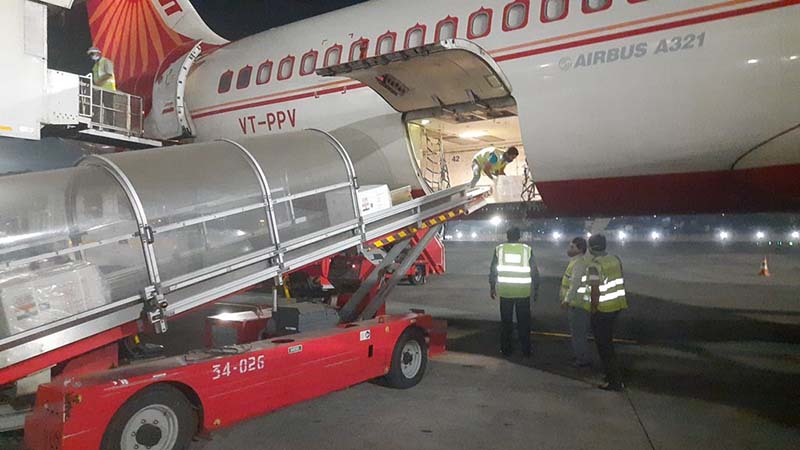

At the time when Nepal has been preparing to roll out the second dose of vaccine against COVID-19 from April 20 to 24, India, one of the manufacturers of COVID vaccine, has imposed a de facto ban on exporting jabs.
It has been learnt that India seeks to prioritise vaccination to locals amid an increasing second wave of coronavirus infections.
The Serum Institute of India, the largest manufacturer of vaccines in the world and the biggest supplier to the international COVAX programme, said it has been directed to halt the exports which could last as long as two or three months.
Although Nepal has successfully administered the COVID vaccine on the second phase of the vaccination drive, authorities were worried about future supplies and now the ban imposed on the export of jabs can be seen as a heavy blow for people in Nepal.
Gavi, the UN-backed international vaccine alliance, was quoted in India’s media the Financial Times as saying that the controls would have a direct impact on the Covax scheme, set up with the World Health Organisation to ensure the equitable global distribution of at least 2 billion Covid-19 vaccine doses in 2021.
“Deliveries of Covid-19 vaccines to lower-income economies participating in the Covax facility will face delays following a setback in securing export licences for further doses . . . produced by the Serum Institute of India (SII) expected to be shipped in March and April,” Gavi said in a statement on Thursday.
Meanwhile, Nepal has so far received 2,348,000 doses of vaccines — one million doses under grant assistance from India, another one million doses of the 2,000,000 doses which the government has bought from the Serum Institute of India, and another 348,000 doses under the COVAX facility. Nepal has been promised the supplies of 13.2 million doses of the vaccine through this facility.
The Serum Institute is contracted to manufacture 550 million doses of Oxford/AstraZeneca vaccine and 550 million doses of Novavax vaccine for Covax in 2021 and 2022, more than 80 per cent of the facility’s current signed contracts, according to data from the start of March.
AstraZeneca, Novavax and the WHO did not immediately respond to requests for comment. On the other hand, India’s foreign ministry has also declined to comment, the Indian media reported.
News of the controls came as EU leaders prepared for talks later on Thursday on proposed export curbs in Europe as the bloc attempts to make up for a large shortfall in deliveries of the AstraZeneca vaccine to member states.
India is experiencing a sharp rise in new coronavirus cases and is preparing to expand its vaccination campaign to people aged 45 and above on April 1.
Experts said officials were waiting to assess demand for vaccinations in the next stage of the rollout before clearing export shipments.
“Everything other than India is on hold for the time being; India is the priority,” said a person briefed on the vaccine export talks.
India has exported 60 million doses of COVID vaccines to countries around the world — more than it has given to its own people — and some states, including the eastern state of Orissa, have reported that they are running low on vaccine stocks.
Meanwhile, India on Thursday reported 53,000 new infections in the past 24 hours, the highest number since October last year.